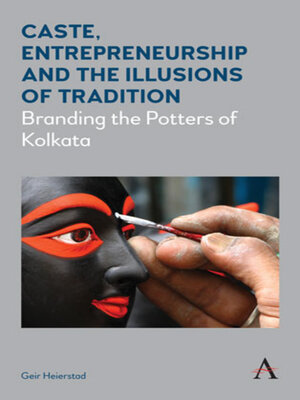Caste, Entrepreneurship and the Illusions of Tradition
ebook ∣ Branding the Potters of Kolkata · Diversity and Plurality In South Asia
By Geir Heierstad

Sign up to save your library
With an OverDrive account, you can save your favorite libraries for at-a-glance information about availability. Find out more about OverDrive accounts.
Find this title in Libby, the library reading app by OverDrive.



Search for a digital library with this title
Title found at these libraries:
| Library Name | Distance |
|---|---|
| Loading... |
Caste, Entrepreneurship and the Illusions of Tradition is an ethnographic study of the potters of Kolkata's Kumartuli, an analysis of their lives and the related commodification and instrumentalization of caste. This group of artisans turned artists do not display passive responses to colonial and capitalist encounters but engage actively with the modern and economic developments of society at large, redefining the concept of caste identity in the process. Caste, Entrepreneurship and the Illusions of Tradition suggests a new academic direction for the study of modern India, and of caste in particular, through an empirically grounded portrayal of the synthesis of traditional categories and contemporary realities.
|In Kolkata's traditional potter quarter of Kumartuli, a modern and a competitive market oriented approach to life is concealed behind tradition. Among the potters inhabiting the dirt-floored workshops of this caste-based neighbourhood, the history of a modern and economicly neoliberal-minded India unfolds. To these contemporary potters, caste is in their blood, caste is about being a creative and independent artist, and caste is about business as they engage in a competitive market to sell their artworks. This ethnographic study presents an analysis of these potters' lives and the related commodification and instrumentalization of caste. An important insight is that Kumartuli consists of a group of artisans turned artists who do not display passive responses to colonial and capitalist encounters. On the contrary, this monograph unearths an ingenious and business-minded group that engages actively with the modern and economic developments of society at large, and, in the process, redefines the concept of caste identity. This study suggests a new academic direction for the study of modern India, and of caste in particular, through an empirically grounded portrayal of the synthesis of traditional categories and contemporary realities.







